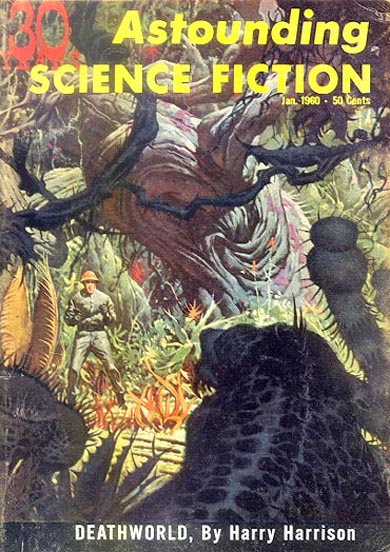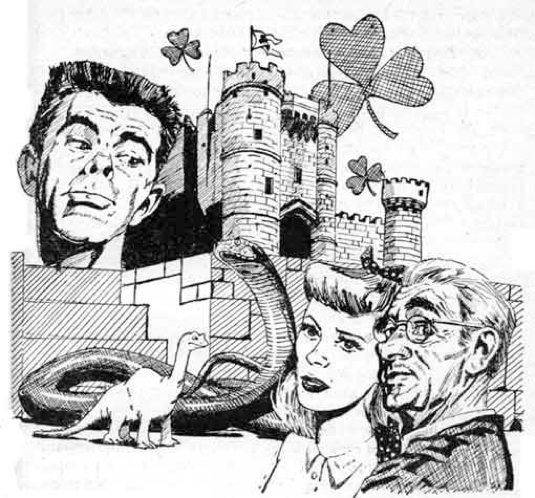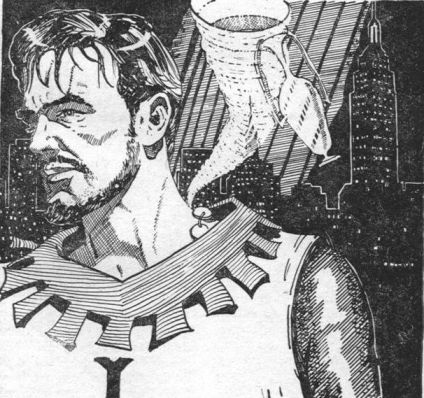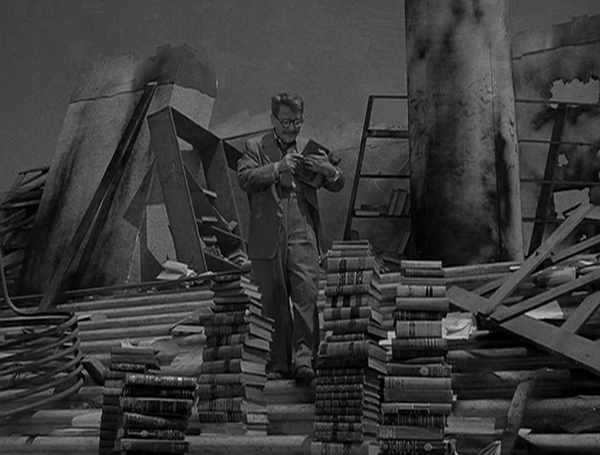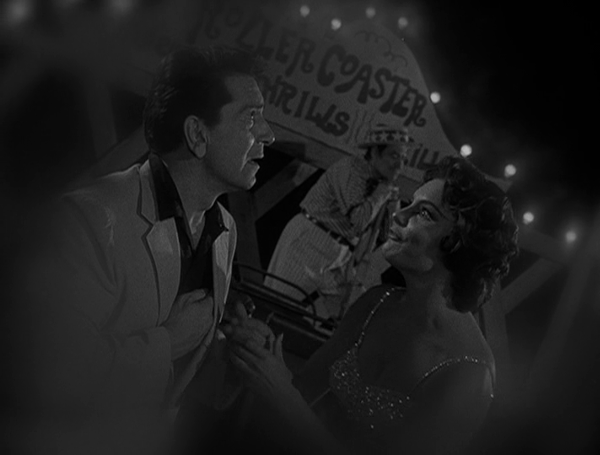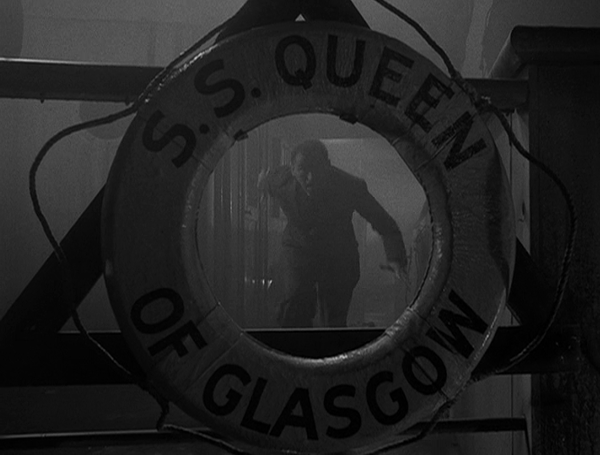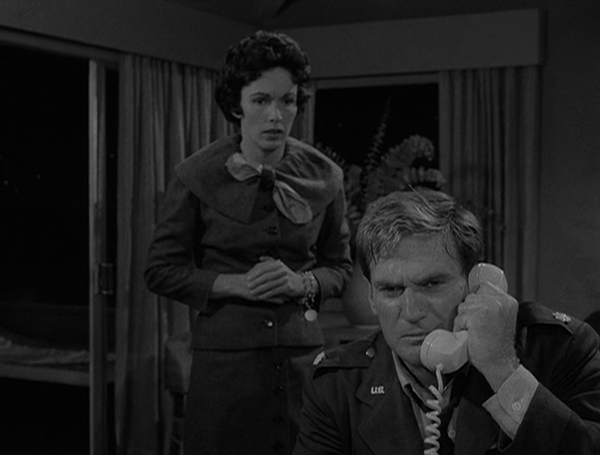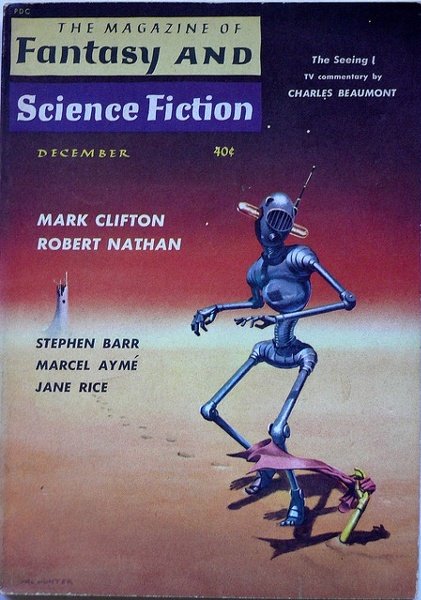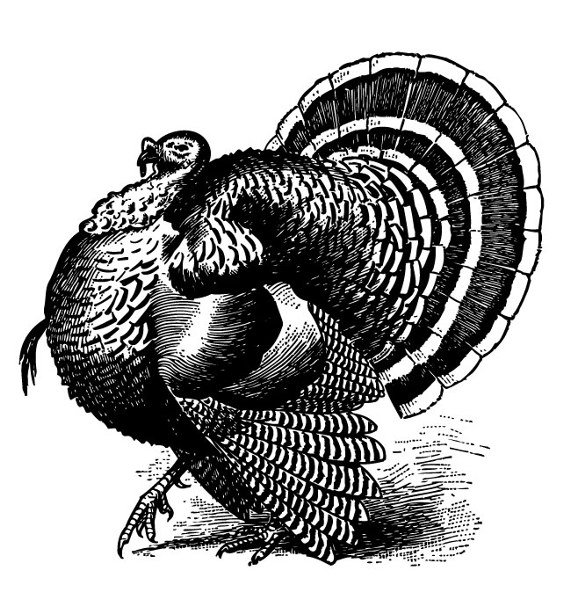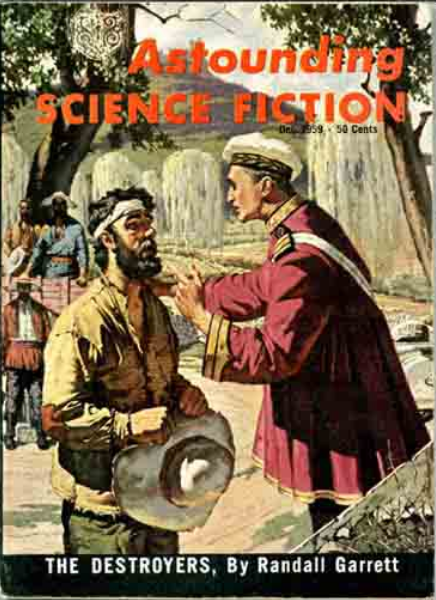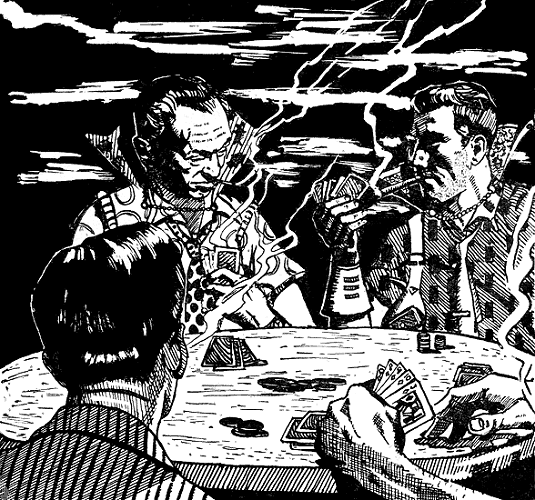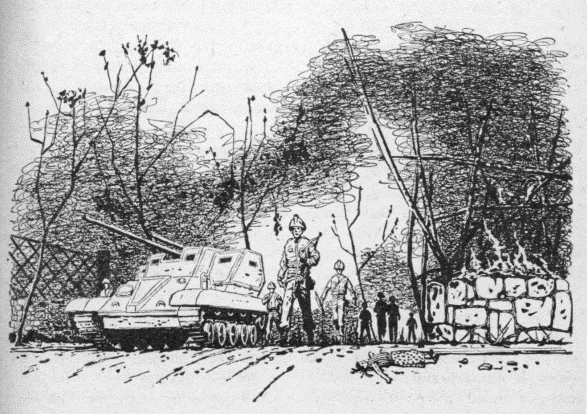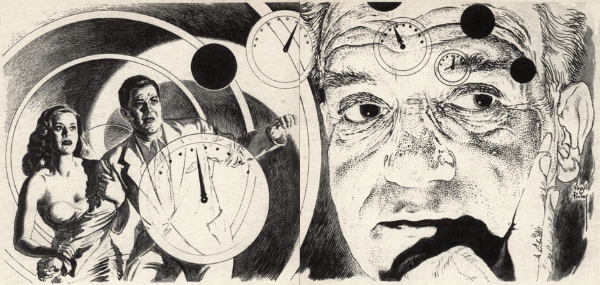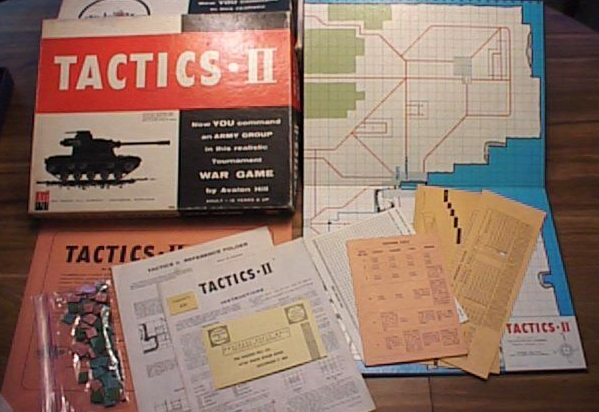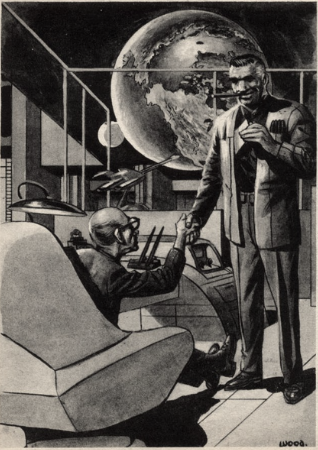
The new IF Science Fiction magazine, now under the Galaxy aegis, is an odd duck. Not quite a literary book, like F&SF, not an antediluvian throwback like Astounding, and not as polished as its older brother, Galaxy, IF is nevertheless generally a worthy read.
I don’t think it’s just a repository for substandard Galaxy submissions—the stories in IF are different in style and tone. I think, if anything, it’s more of a showcase for experimental stuff and new authors.
As such, we get to see a lot of fresh faces, but not necessarily the best tales. Here are my impressions from the November issue, the third under Gold/Pohl’s editorial helm:
First up is If You Wish, by John Rackham, in which a confirmed bachelor botanist secluded in a space-based greenhouse, is burdened with a female-form robot assistant, with whom he (grudgingly) falls in love. Traditionally, IF has stuck its best submissions right up front, but not this time. It’s not bad, exactly, and there is some quite good writing in here, as well as a lot of interesting and detailed stuff on Venusian botany, but it reads a bit like a wish-fulfillment daydream. It also strikes me as overly fannish that the robot’s name is “Susan Calvin,” and direct reference is made to Asimov’s Three Laws of Robotics.
On the other hand, the two characters are pretty well-drawn, the protagonist is unfailingly a gentleman, albeit a somewhat neurotic one, and in the end, it’s Susan who’s in control of the situation the whole time. By the way, if you don’t spot the “twist” in the first few pages, you’re not trying.
Miriam Allen deFord has been around for a while. Her Nor Snow Nor Rain starts out so well, but it ends with a whimper. A retiring postal worker comes upon a mystery on his last day—the office to which he must deliver his last parcels doesn’t exist! Being a science fiction fan (the first I’ve read about in a science fiction story, and a nice piece of portraying someone with multiple interests), he comes up with a number of explanations, which serve as effective red herrings.
Sadly, the actual explanation is the least interesting and the most hackneyed. Again, good writing but flawed execution.
I did not like Good-by, Gloria by “Ted Bain” (really the prolific Britisher, E.C.Tubb). Spacers working for an insufferably perfect captain decide to leave stranded an insufferably perfect female castaway, who has bootstrapped herself a la Tarzan, for fear that she and the captain will have insufferably perfect children. It’s supposed to be funny; it comes off as heartless. And dumb.

The talented J.T.McIntosh’ Return of a Prodigal is an altogether different matter. It is more bitter than sweet, but it’s also defiant and triumphant, and it stars a very compelling female lead. In brief: about six generations from now, the Moon is colonized. It turns out that a decent proportion of humanity suffers from incurable and potentially fatal spacesickness. As a result, the Moon colony (the beautifully conceived and described Luna City) becomes a haven for hereditary “viaphobes,” those who cannot go anywhere else to live. They are a proud bunch, and they refuse to admit that they have a disorder; they can leave whenever they want, they maintain.
At the tender age of 18, a girl named Clare, overshadowed by her pretty older sister, Emma, decides to go to New York on Earth and expose viaphobia publicly. The ensuing article shames the lunar residents, and Clare is essentially banished. Some ten years later, after a failed marriage on a colony world, Clare returns to Luna City, and that is where the story begins.
I don’t want to spoil any more, even though I do not have permission from Mr. McIntosh to distribute the tale. All I can say is that it’s worth finding and reading. I’m not sure if it’s a 4 or 5 star story, but I suspect I will go for 5 since there’s nothing wrong with it—it’s just a little hard to take at times.
Wynne Whiteford has the next entry: The Gelzek Business. Alien female engineer and temptress convinces two men to back production of her gizmos despite her secretiveness regarding their actual function. It’s an unsatisfying story, one of the weaker entries. I’m still waiting for an unflawed Whiteford piece.
Jerry Sohl's Counterweight, about the extreme measures taken to keep several thousand colonists sane on a year-long trip to an interstellar colony, is diverting, well-written, but unremarkable. The solution, having one of the crew commit a slew of crimes to invoke the wrath of the passengers, seems awfully silly.
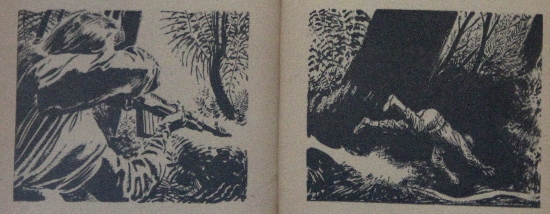
I did enjoy E.C. Tubb's other story in this book, the thriller, Orange. On a world with the universe's most valuable substance, guarded by a race of psionic aliens, money is king. And the only way to make money is to own a trading concession. One can duel a concession-holder for such a prize, which makes life interesting indeed. This story details one such duel and the unorthodox way in which it turns out. It's the most Galaxy-style of all of the stories in this ish, I think.
All told, the November issue comes up a 3-star mag. This is misleading, however, given the wide inconsistency of its contents. IF may end up being one of the greats someday. It's certainly a damnsight better than Astounding.
Sorry about the late edition. I didn't have much to report on before, and now my typewriter is busted. Expect the next update in a few days. At least the next lovely crop of magazines has arrived in my mail.
Happy Halloween, everyone!
(Note: It is not clear who drew the internal artwork–credit goes to "Harrison, Morrow, and Emsh." I'm guessing the art for Prodigal is Emsh's.
—
Note: I love comments (you can do so anonymously), and I always try to reply.
P.S. Galactic Journey is now a proud member of a constellation of interesting columns. While you're waiting for me to publish my next article, why not give one of them a read!

(Confused? Click here for an explanation as to what's really going on)
This entry was originally posted at Dreamwidth, where it has  comments. Please comment here or there.
comments. Please comment here or there.
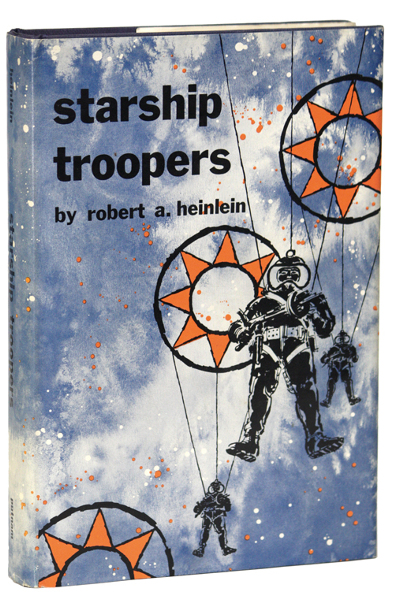
comments. Please comment here or there.


